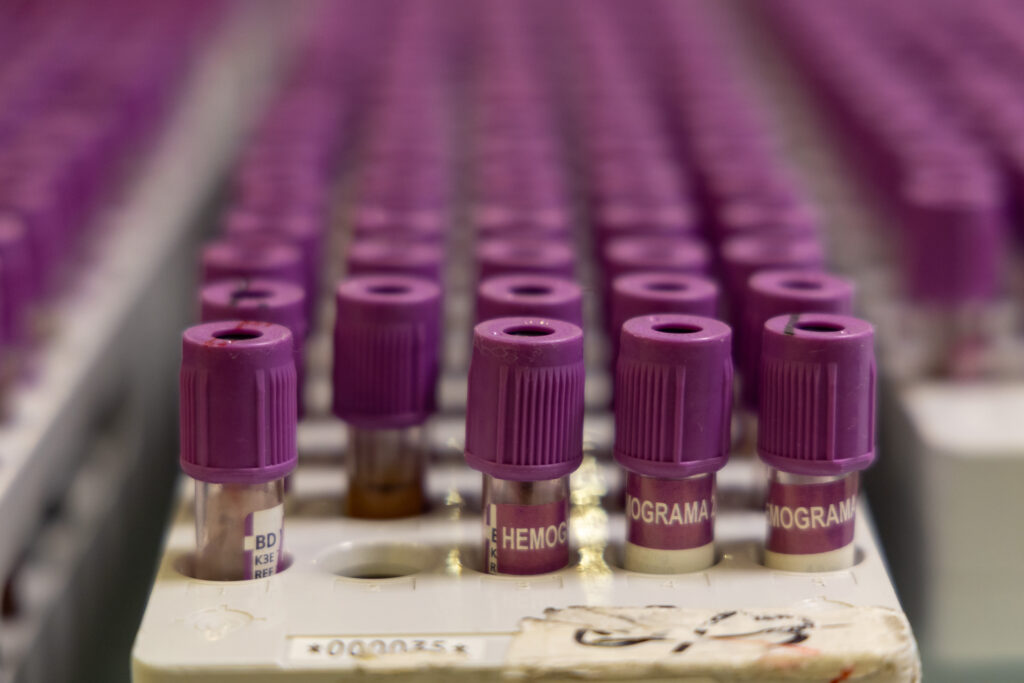Liquid Biopsy
What is a Liquid Biopsy?
A liquid biopsy is an advanced and minimally invasive technique that allows for cancer analysis using a sample of bodily fluids, such as blood, urine, or cerebrospinal fluid. This procedure detects circulating tumor DNA (ctDNA), circulating tumor cells (CTC), or extracellular vesicles released by the tumor. It is a key tool for the diagnosis, monitoring, and personalization of cancer treatment.
What is this test used for?
Liquid biopsy is primarily used in:
- Early diagnosis: Used to detect cancer-related genetic mutations before symptoms appear.
- Clinical monitoring: Serves to monitor the evolution of cancer and evaluate treatment response.
- Identification of relapses: Helps detect cancer recurrences after treatment.
- Therapeutic personalization: Used to analyze the molecular profile of the tumor to adapt treatments to the specific characteristics of the patient.
- Metastasis study: Used to evaluate the spread of cancer to other parts of the body.
Benefits of high technology in oncological robotic surgery
The procedure analyzes bodily fluid samples to detect cancer-related biomarkers. These biomarkers include circulating tumor DNA fragments, specific proteins, and tumor cells present in the blood. The data obtained allows for identifying genetic mutations, studying tumor heterogeneity, and monitoring its behavior in real-time.

How is the procedure performed?
The liquid biopsy procedure involves:
-
Preparation:
In the initial consultation, your oncologist will review your medical history and analyze the results of previous tests, such as conventional biopsies or imaging studies. Then, additional analyses will be performed to identify the specific biomarkers to be sought in the liquid biopsy.
-
During the test:
A small blood sample will be taken via venipuncture. In some cases, other bodily fluids, such as urine or cerebrospinal fluid, may also be analyzed. The sample will be processed in the laboratory using advanced techniques, such as genetic sequencing or digital PCR, to identify cancer-related biomarkers. The extraction takes between 5 and 10 minutes, while laboratory analysis can take several days.
-
After the test:
You can resume your normal activities immediately after sample collection. The results will be analyzed and interpreted by a molecular oncology specialist and then sent to your treating physician. You will be recommended to undergo periodic liquid biopsies to monitor the evolution of the cancer.
Recommendations for the test
In some cases, you will be advised to fast for a few hours before blood collection. It is important to inform your medical team if you are taking anticoagulants or other medications that may affect sample quality. Additionally, be sure to follow all instructions before, during, and after the procedure to ensure accurate results.
Are there any risks?
Liquid biopsy is a safe and minimally invasive procedure. However, there may be some minimal considerations:
- Mild discomfort: You might experience mild pain or bruising at the blood collection site.
- Technical limitations: In some cases, the amount of biomarkers present in the sample may be insufficient for a complete analysis.
For your test to proceed smoothly, we ask that you arrive in advance of your scheduled time. This will allow us to complete the necessary administrative and clinical preparation.
Before the test, we will provide you with the Informed Consent form, a document with important information that you must read and sign.
If your appointment is for a Magnetic Resonance Imaging (MRI), it is crucial that you inform us about the presence of pacemakers, metallic objects, prostheses (including dental), tattoos, or medication infusion devices, such as insulin pumps.
These diagnostic tests are very safe, but as with any medical procedure, there is a minimal possibility of incidence.